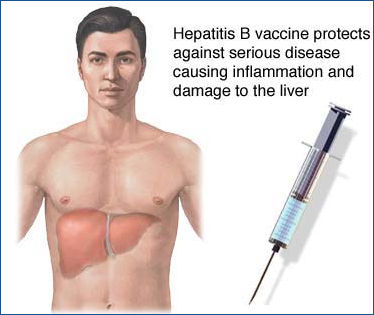| Hepatitis
B Prevalence and Susceptibility among Immigrant and U.S.-born Asians and Pacific
Islanders By
Liz Highleyman People
of Asian and Pacific Islander descent have a relatively high rate of hepatitis
B virus (HBV) infection, since the disease is endemic in much of Asia. In
these areas, people were often infected at birth before the widespread availability
of the hepatitis B vaccine. While a
majority of people infected as adults spontaneously clear the virus, 90% of those
infected as infants develop chronic disease. 
There
has not been much research, however, on differences in prevalence between first-generation
Asian immigrants to the U.S. and their children and grandchildren, an issue addressed
by Michele Tana and colleagues from California Pacific Medical Center at the Digestive
Disease Week (DDW 2009) annual meeting last week in Chicago. Chronic
hepatitis B affects approximately 400 million people worldwide, with a disproportionately
high prevalence in Asians and Pacific Islanders, the researchers noted as background.
It is estimated that 1 in 10 Asian/Pacific Islanders is chronically infected with
HBV. Guidelines
put forth by various organizations lack consistency regarding HBV screening of
Asian/Pacific Islanders, they continued. While many research groups recommend
screening of all Asian/Pacific Islanders for chronic HBV -- and this has been
mandated by recent legislation in Congress -- the U.S. Centers for Disease Control
and Prevention (CDC) and the American Association for the Study of Liver Diseases
(AASLD) each have slightly different guidelines. As
part of the San Francisco Hep B Free campaign, the investigators offered free
HBV serological screening -- and vaccination, if appropriate -- to more than 2000
Asian/Pacific Islanders between January and October 2008. Results  | Of
the 2118 total participants screened, 72 (3.4%) were chronically infected with
HBV. |  | Among
people who reported previous HBV vaccination, 90 (32.5%) were found to lack protective
antibodies and 3 (1.1%) were chronically infected. |  | Among
the Asian/Pacific Islanders screened, 64 (3.3%) were chronically infected with
HBV. |  | Men
were 1.5 times more likely than women to be chronically infected. |  | Adults
aged 60 years or older were 3 times more likely to be infected compared with younger
individuals. |  | Asian/Pacific
Islanders born in endemic regions were 4.6 times more likely to be chronically
infected than U.S.-born Asian/Pacific Islanders. |  | Among
Asian/Pacific Islander participants who were not chronically infected, 993 (51%)
lacked protective antibodies and therefore were at risk for future HBV infection.
|
In
an earlier study, a Markov model of different screening strategies suggested that
it is cost-effective to screen all Asian/Pacific Islanders for chronic HBV, regardless
of birthplace, the researchers noted. But few studies have examined rates of chronic
infection in second- and third-generation Asian/Pacific Islanders -- that is,
people born in the U.S. whose parents or grandparents were born in Asia. Based
on an interim analysis of the Hep B Free Campaign, the investigators hypothesized
that "it is not cost-effective to screen all Asian/Pacific Islanders given
the lower prevalence rates in second- and third-generation U.S.-born Asian/Pacific
Islanders." "Clearly,
there is a need for identification of hepatitis B cases in the Asian/Pacific Islander
community and vaccination when appropriate," they concluded. "By identifying
non-traditional risk factors such as parental birthplace in U.S.-born Asian/Pacific
Islanders, we hope to make screening efforts more targeted, cost-effective, and
successful." Transplant
Hepatology, California Pacific Medical Center, San Francisco, CA. 6/12/09 Reference
M
Tana, K Hoda, J Wong, and others. HBV Screening in Asian Pacific Islander Americans:
An Interim Analysis of the Hep B Free Program. Digestive Disease Week (DDW 2009).
Chicago. May 30-June 4, 2009. Abstract W1811.
|